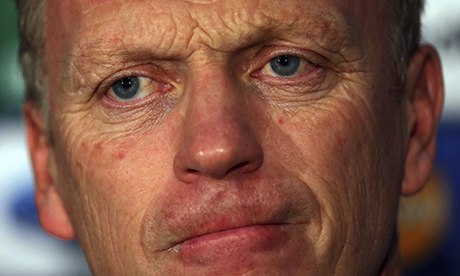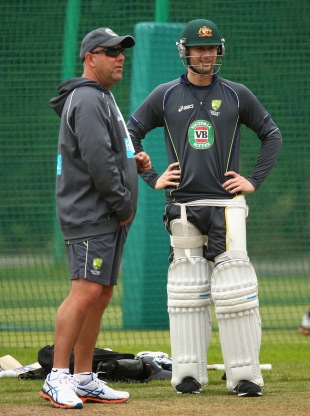'People will forgive you for being wrong, but they will never forgive you for being right - especially if events prove you right while proving them wrong.' Thomas Sowell
Search This Blog
Showing posts with label charisma. Show all posts
Showing posts with label charisma. Show all posts
Wednesday, 30 August 2023
Sunday, 10 July 2022
Monday, 10 February 2014
How internet dating became everyone's route to a perfect love match
The algorithm method: how internet dating became everyone's route to a perfect love match
Six million Britons are looking for their perfect partner online before Valentine's day on Friday, but their chance of success may depend on clever maths rather than charisma

Six million Britons visit dating sites each month. Photograph: Tom Merton/Getty Images/OJO Images RF
In the Summer of 2012, Chris McKinlay was finishing his maths dissertation at the University of California in Los Angeles. It meant a lot of late nights as he ran complex calculations through a powerful supercomputer in the early hours of the morning, when computing time was cheap. While his work hummed away, he whiled away time ononline dating sites, but he didn't have a lot of luck – until one night, when he noted a connection between the two activities.
One of his favourite sites, OkCupid, sorted people into matches using the answers to thousands of questions posed by other users on the site.
"One night it started to dawn on me the way that people answer questions on OkCupid generates a high dimensional dataset very similar to the one I was studying," says McKinlay, and it transformed his understanding of how the system worked. "It wasn't like I didn't like OkCupid before, it was fine, I just realised that there was an interesting problem there."
McKinlay started by creating fake profiles on OkCupid, and writing programs to answer questions that had also been answered by compatible users – the only way to see their answers, and thus work out how the system matched users. He managed to reduce some 20,000 other users to just seven groups, and figured he was closest to two of them. So he adjusted his real profile to match, and the messages started rolling in.
McKinlay's operation was possible because OkCupid, and so many other sites like it, are much more than just simple social networks, where people post profiles, talk to their friends, and pick up new ones through common interest. Instead, they seek to actively match up users using a range of techniques that have been developing for decades.
Every site now makes its own claims to "intelligent" or "smart" technologies underlying their service. But for McKinlay, these algorithms weren't working well enough for him, so he wrote his own. McKinlay has since written a book Optimal Cupid about his technique, while last year Amy Webb, a technology CEO herself, published Data, a Love Story documenting how she applied her working skills to the tricky business of finding a partner online.
Two people, both unsatisfied by the programmes on offer, wrote their own; but what about the rest of us, less fluent in code? Years of contested research, and moral and philosophical assumptions, have gone into creating today's internet dating sites and their matching algorithms, but are we being well served by them? The idea that technology can make difficult, even painful tasks – including looking for love – is a pervasive and seductive one, but are their matchmaking powers overstated?
 The Kiss, 1901-4, by sculptor Auguste Rodin. Photograph: Sarah Lee for the Guardian
The Kiss, 1901-4, by sculptor Auguste Rodin. Photograph: Sarah Lee for the Guardian
In the summer of 1965, a Harvard undergraduate named Jeff Tarr decided he was fed up with the university's limited social circle. As a maths student, Tarr had some experience of computers, and although he couldn't program them himself, he was sure they could be used to further his primary interest: meeting girls. With a friend he wrote up a personality quiz for fellow students about their "ideal date" and distributed it to colleges across Boston. Sample questions included: "Is extensive sexual activity [in] preparation for marriage, part of 'growing up?'" and "Do you believe in a God who answers prayer?" The responses flooded in, confirming Tarr's suspicion that there was great demand for such a service among the newly liberated student population. Operation Match was born.
In order to process the answers, Tarr had to rent a five-ton IBM 1401 computer for $100 an hour, and pay another classmate to program it with a special matching operation. Each questionnaire was transferred to a punch-card, fed into the machine, and out popped a list of six potential dates, complete with address, phone number and date of graduation, which was posted back to the applicant. Each of those six numbers got the original number and five others in their response: the program only matched women with their ideal man if they fitted his ideal too.
When Gene Shalit, a reporter from Look magazine, arrived to cover the emerging computer-dating scene in 1966, Operation Match claimed to have had 90,000 applications and taken $270,000 in revenue. Even at the birth of the computer revolution, the machine seemed to have an aura about it, something which made its matches more credible than a blind date or a friend's recommendation. Shalit quoted a freshman at Brown University who had dumped her boyfriend but started going out with him again when Operation Match sent her his number. "Maybe the computer knows something that I don't know," she said. Shalit imbued it with even more weight, calling it "The Great God Computer".
The computer-dating pioneers were happy to play up to the image of the omniscient machine – and were already wary of any potential stigma attached to their businesses. "Some romanticists complain that we're too commercial," Tarr told reporters. "But we're not trying to take the love out of love; we're just trying to make it more efficient. We supply everything but the spark." In turn, the perceived wisdom of the machine opened up new possibilities for competition in the nascent industry, as start-up services touted the innovative nature of their programs over others. Contact, Match's greatest rival, was founded by MIT graduate student David DeWan and ran on a Holywell 200 computer, developed in response to IBM's 1401 and operating two to three times faster. DeWan made the additional claim that Contact's questions were more sophisticated than Match's nationwide efforts, because they were restricted to elite college students. In essence, it was the first niche computer-dating service.
Over the years since Tarr first starting sending out his questionnaires, computer dating has evolved. Most importantly, it has become online dating. And with each of these developments – through the internet, home computing, broadband, smartphones, and location services – the turbulent business and the occasionally dubious science of computer-aided matching has evolved too. Online dating continues to hold up a mirror not only to the mores of society, which it both reflects, and shapes, but to our attitudes to technology itself.
The American National Academy of Sciences reported in 2013 that more than a third of people who married in the US between 2005 and 2012 met their partner online, and half of those met on dating sites. The rest met through chatrooms, online games, and elsewhere. Preliminary studies also showed that people who met online were slightly less likely to divorce and claimed to be happier in their marriages. The latest figures from online analytics company Comscore show that the UK is not far behind, with 5.7 million people visiting dating sites every month, and 49 million across Europe as a whole, or 12% of the total population. Most tellingly for the evolution of online dating is that the biggest growth demographic in 2012 was in the 55+ age range, accounting for 39% of visitors. When online dating moves not only beyond stigma, but beyond the so-called "digital divide" to embrace older web users, it might be said to have truly arrived.
It has taken a while to get there. Match.com, founded in 1993, was the first big player, is still the biggest worldwide, and epitomises the "online classifieds" model of internet dating. Match.com doesn't make any bold claims about who you will meet, it just promises there'll be loads of them. eHarmony, which followed in 2000, was different, promising to guide its users towards long-term relationships – not just dating, but marriage. It believed it could do this thanks to the research of its founder, Neil Clark Warren, a then 76-old psychologist and divinity lecturer from rural Iowa. His three years of research on 5,000 married couples laid the basis for a truly algorithmic approach to matching: the results of a 200-question survey of new members (the "core personality traits"), together with their communication patterns which were revealed while using the site.
Whatever you may think of eHarmony's approach – and many contest whether it is scientifically possible to generalise from married people's experiences to the behaviour of single people – they are very serious about it. Since launch, they have surveyed another 50,000 couples worldwide, according to the current vice-president of matching, Steve Carter. When they launched in the UK, they partnered with Oxford University to research 1,000 British couples "to identify any cultural distinctions between the two markets that should be represented by the compatibility algorithms". And when challenged by lawsuits for refusing to match gay and lesbian people, assumed by many to be a result of Warren's conservative Christian views (his books were previously published in partnership with the conservative pressure group, Focus on the Family), they protested that it wasn't morality, but mathematics: they simply didn't have the data to back up the promise of long-term partnership for same-sex couples. As part of a settlement in one such lawsuit, eHarmony launched Compatible Partners in 2009.
Carter says: "The Compatible Partners system is now based on models developed using data collected from long-term same-sex couples." With the rise of Facebook, Twitter, and celebrity-driven online media, have come more personalised and data-driven sites such as OkCupid, where Chris McKinlay started his operation. These services rely on the user supplying not only explicit information about what they are looking for, but a host of assumed and implicit information as well, based on their morals, values, and actions. What underlies them is a growing reliance not on stated preferences – for example, eHarmony's 200-question surveys result in a detailed profile entitled "The Book of You" – but on actual behaviour; not what people say, but what they do.
In 2007, Gavin Potter made headlines when he competed successfully in the Netflix Prize, a $1m competition run by the online movie giant to improve the recommendations its website offered members. Despite competition from teams composed of researchers from telecoms giants and top maths departments, Potter was consistently in the top 10 of the leaderboard. A retired management consultant with a degree in psychology, Potter believed he could predict more about viewers' tastes from past behaviour than from the contents of the movies they liked, and his maths worked. He was contacted by Nick Tsinonis, the founder of a small UK dating site called yesnomayb, who asked him to see if his approach, called collaborative filtering, would work on people as well as films.
Collaborative filtering works by collecting the preferences of many people, and grouping them into sets of similar users. Because there's so much data, and so many people, what exactly the thing is that these groups might have in common isn't always clear to anyone but the algorithm, but it works. The approach was so successful that Tsinonis and Potter created a new company, RecSys, which now supplies some 10 million recommendations a day to thousands of sites. RecSys adjusts its algorithm for the different requirements of each site – what Potter calls the "business rules" – so for a site such as Lovestruck.com, which is aimed at busy professionals, the business rules push the recommendations towards those with nearby offices who might want to nip out for a coffee, but the powerful underlying maths is Potter's. Likewise, while British firm Global Personals provides the infrastructure for some 12,000 niche sites around the world, letting anyone set up and run their own dating website aimed at anyone from redheads to petrolheads, all 30 million of their users are being matched by RecSys. Potter says that while they started with dating "the technology works for almost anything". RecSys is already powering the recommendations for art discovery site ArtFinder, the similar articles search on research database Nature.com, and the backend to a number of photography websites. Of particular interest to the company is a recommendation system for mental health advice site Big White Wall. Because its users come to the site looking for emotional help, but may well be unsure what exactly it is they are looking for, RecSys might be able to unearth patterns of behaviour new to both patients and doctors, just as it reveals the unspoken and possibly even unconscious proclivities of daters.
 Tinder is a new dating app on smartphones.
Tinder is a new dating app on smartphones.
Back in Harvard in 1966, Jeff Tarr dreamed of a future version of his Operation Match programme which would operate in real time and real space. He envisioned installing hundreds of typewriters all over campus, each one linked to a central "mother computer". Anyone typing their requirements into such a device would receive "in seconds" the name of a compatible match who was also free that night. Recently, Tarr's vision has started to become a reality with a new generation of dating services, driven by the smartphone.
Suddenly, we don't need the smart algorithms any more, we just want to know who is nearby. But even these new services sit atop a mountain of data; less like Facebook, and a lot more like Google.
Tinder, founded in Los Angeles in 2012, is the fastest-growing dating app on mobile phones but its founders don't like calling it that. According to co-founder and chief marketing officer Justin Mateen, Tinder is "not an online dating app, it's a social network and discovery tool".
He also believes that Tinder's core mechanic, where users swipe through Facebook snapshots of potential matches in the traditional "Hot or Not" format, is not simple, but more sophisticated: "It's the dynamic of the pursuer and the pursued, that's just how humans interact." Tinder, however, is much less interested in the science of matching up couples than its predecessors. When asked what they have learned about people from the data they have gathered, Mateen says the thing he is most looking forward to seeing is "the number of matches that a user needs over a period of time before they're addicted to the product" – a precursor of Tinder's expansion into other areas of ecommerce and business relationships.
Tinder's plans are the logical extension of the fact that the web has really turned out to be a universal dating medium, whatever it says on the surface. There are plenty of sites out there deploying the tactics and metrics of dating sites without actually using the D-word. Whether it's explicit – such as Tastebuds.fm, which matches up "concert buddies" based on their Spotify music tastes – or subtle, the lessons of dating research have been learned by every "social" site on the web. Nearly every Silicon Valley startup video features two photogenic young people being brought together, whatever the product, and the same matching algorithms are at work whether you're looking for love, a jobbing plumber, or a stock photograph.
Over at UCLA, Chris McKinlay's strategy seems to have paid off. After gathering his data and optimising his profile, he started receiving 10-12 unsolicited messages every day: an unheard of figure online, where the preponderance of creeps tends to put most women on the defensive. He went on 87 dates, mostly just a coffee, which "were really wonderful for the most part". The women he met shared his interests, were "really intelligent, creative, funny" and there was almost always some attraction. But on the 88th date, something deeper clicked. A year later, he proposed.
Online dating has always been in part about the allure and convenience of the technology, but it has mostly been about just wanting to find "the one". The success of recommendation systems ,which are just as applicable to products as people, says much about the ability of computers to predict the more fundamental attractions that would have got McKinlay there sooner – his algorithms improved his ability to get dates, but not much on the likelihood of them progressing further.
In the end, the development of online dating tells us more about our relationship with networked technology than with each other: from "the Great God Computer", to a profusion of data that threatens to overwhelm us, to the point where it is integrated, seamlessly and almost invisibly, with every aspect of our daily lives.
Tuesday, 10 December 2013
David Moyes, just like John Major, is destined to fail
Sport is no different from politics. There is a syndrome that means it's all but impossible for one star to follow another

Manchester United manager David Moyes is discovering how hard it is to follow a predecessor of star quality Photograph: Dave Thompson/PA
You don't have to be a football fan to understand the trouble with David Moyes. Anyone familiar with the highest reaches of politics will recognise his predicament immediately. For those who turn rarely to the back pages, Moyes is in his first season as the manager of Manchester United. He inherited a team that had just won yet another title as Premier League champions, but under him they are struggling. Now ninth in the league, they are a full 13 points off the top spot. What's more, Moyes has broken a few awkward records. Under him, the team have lost at home to Everton (his old club) for the first time in 21 years and on Saturday lost to Newcastle at Old Trafford for the first time since 1972. Tonight another unwanted feat threatens. If they lose to the Ukrainian team Shakhtar Donetsk, it will be the first time United have suffered three successive home defeats in 50 years.
Watch Moyes attempt to explain these results, or defend his performance, in a post-match interview or press conference and, if you're a political anorak, you instantly think of one man: John Major. Or, if you're an American, perhaps the first George Bush. For what you are witnessing is a classic case of a syndrome that recurs in politics: the pale successor fated to follow a charismatic leader and forever doomed by the comparison.
Major may be earning some late kudos and revision of his reputation now, but while prime minister he was in the permanent shadow of his predecessor, Margaret Thatcher. Bush the elder was always going to be dull after the man who went before him, Ronald Reagan. So it is with Moyes, who was given the hardest possible act to follow – inheriting from one of the footballing greats, Sir Alex Ferguson.
It's a pattern that recurs with near-universal regularity. Tony Blair was prime minister for 10 years; Gordon Brown never hit the same heights and only managed three. Same with Jean Chrétien of Canada and his luckless successor Paul Martin. Or, fitting for this day, consider the case of Thabo Mbeki whose destiny was to be the man who took over from Nelson Mandela and so was all but preordained to be a disappointment.
It's as if an almost Newtonian law applies: the charisma of a leader exists in inverse proportion to the charisma of his or her predecessor. Moyes is only the latest proof.
What could explain the syndrome? Does nature abhor one star following another in immediate succession?
One theory suggests itself, though it draws more from psychology than physics. Note the role, direct or indirect, many of these great leaders had in choosing their successors. Could it be that some part of them actually wanted a lacklustre heir, all the better to enhance their own reputation? United could have had any one of the biggest, most glamorous names in football at the helm, yet Ferguson handpicked Moyes. Did Sir Alex do that to ensure he would look even better?
For this is how it works. Once the great man or woman has gone, and everything falls apart, their apparent indispensability becomes all the harder to deny. Manchester United fans look at the same players who were champions a few months ago, now faring so badly, and conclude: Ferguson was the reason we won.
If that was his unconscious purpose in picking the former Everton boss, then Sir Alex chose very wisely. And Moyes can comfort himself that, in this regard at least – like Major, Bush, Brown and so many others before him – he's doing his job perfectly.
Wednesday, 24 July 2013
Australian Cricket: hubris, despair, panic
Clarke and Co find themselves where England were in the 1990s. But how did the two nations fall into such a state?
Ed Smith
July 24, 2013

| |||
Related Links
Players/Officials: Michael Clarke | Darren Lehmann
Series/Tournaments: Australia tour of England and Scotland
| |||
I have been watching Michael Clarke, but the shadows I see following him around - to my eyes, anyway - resemble the ghosts of old English nightmares.
When Clarke stood at slip on the third day at Lord's, with the match over as a contest but unmercifully drawn out as a spectacle, he experienced what every captain dreads. He could move the deckchairs, but the boat was sinking. He could change the bowling, but it would be determined by a sense of fairness and sharing the burden rather than to swing the match; he could set new fields, but more to protect pride rather than ensnare opponents; and, worst of all, he had to weigh up how fully to engage in captaining the fielding effort, and how much emotional energy to preserve for when his turn to bat came around. Captaining the team, captaining your own mood, managing defeat, managing the draining away of hope.
I bumped into Mike Brearley during the long afternoon slaughter and we agreed: no captain, so far behind in the match and still awaiting a slim chance to save the match with his own bat, can captain flat out in the field all day. He inevitably dips in and out of full engagement, the long spells of routine steadiness in which he preserves emotional energy interspersed with shorter bursts of activity and invention designed partly just to keep up his own sense of interest and alertness. And what emotional outlook should you adopt? Is it easier to retain optimism and be perpetually let down? Or better to accept the inevitable, release the burden of pretence, and just wait to bat with coolly detached precision?
And that is why the shadows looked so English to my eyes. I thought of Michael Atherton and Nasser Hussain, hurling their considerable competitiveness and intelligence at the effort to win the Ashes - pick any moment you like, really, between 1993 and 2002-03 - and ending up exhausted, holding a losing hand of cards, looking within once again, wondering how much more they still had left to give when called upon to bat.
Clarke, when the series is over, will doubtless seek honest conversations with men who have experienced similar suffering. Ironically, the opposition coach, Andy Flower, knows more than most about how to retain exceptional standards while playing for an inferior team.
All of which leads me to the central point: if you are interested in leadership (and I have never met a sports fan without strong opinions about captains, managers and selectors) then you have the obligation to be equally interested in context. Sport, like political analysis, suffers from the recurrent delusion that great leaders can change everything about their circumstances, that they can engineer a new reality out of will power and charisma alone. They cannot.
Just think how beside the point the analysis of Darren Lehmann's character and personality now sounds. It is the same Lehmann - with the same sense of fun and enjoyment, the same sharp cricketing brain, the same mischievous enthusiasm. All of which is being applied to the same tendency of Shane Watson to get lbw, the same Phillip Hughes weakness against spin, the same holes at the top of the order, the same shortage of new cabs on the rank. No coach can solve all those problems in a few weeks. So it is largely irrelevant to analyse the strengths and weaknesses of the man currently trying to do so. Mickey Arthur is suing Cricket Australia for damage to his reputation. Perhaps he should be sending them a cheque and a letter of thanks for preserving it.
So let us leave behind the soap opera, the tidbits of gossip and intrigue. No causal truths reside there. What David Warner's brother thinks of Shane Watson did not lose Australia the Test match, nor did the sacking of Arthur, nor homework-gate, nor an incident in a nightclub, nor even an alleged rift in the team. There was, in fact, no news from Lord's. Old failings, long present, were simply exposed in a clearer light.
Players, they are the problem; performance, that is the flaw; culture, that is the cause.
Before the 2010-11 Ashes, I suggested that the pillars of Australian excellence - club cricket, state cricket, and a hard-bitten unified cricketing culture that ran through their game at all levels - had crumbled. One firm push and the citadel might fall. I first put my theory to a distinguished former England captain. He didn't quite ridicule me, but he smirked at the idea that an enemy that had inflicted so much pain on him might now suffer structural decline. I deferred to his greater experience, cut short my conversational theorising, and steeled myself for print instead.
This is what I wrote in the Spectator on 20th November 2010:
The idea will not leave me alone. A sneaking question keeps coming into my head: are Australia losing their cricketing edge? And I don't just mean the Ashes. I mean the whole legend of the Aussie battler that has been constructed over decades of flinty toughness…[Once] self-reliance was as central as toughness. Rod Marsh's coaching advice was simple: "Sort it out for yourself." That spirit ran through the great tradition. Bradman taught himself to bat by hitting a golf ball against a wall with a stick. Learning to bat was another form of looking after yourself, like pitching a tent in the outback. That resilience was compounded by the sense that Australians had a point to prove, that the world too often underestimated them. Cricket was a means of getting even…I was brought up on the received wisdom that it was the Australian system that made them so tough - the strong club cricket, the fierce inter-state rivalries. Each has now declined, at least to some extent. It may be a very long time indeed - a full turn of the dynastic wheel - before Australia will again be able to boast such a record of dominance.
let us leave behind the soap opera, the tidbits of gossip and intrigue. No causal truths reside there. What David Warner's brother thinks of Shane Watson did not lose Australia the Test match, nor did the sacking of Arthur, nor homework-gate, nor an incident in a nightclub
Subscribe to:
Comments (Atom)
